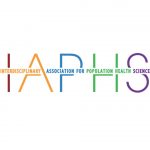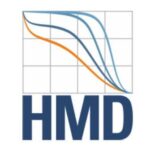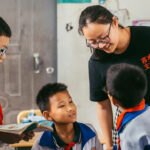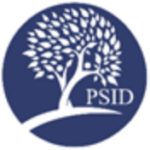*New* Keeping Up With UW-Relevant Federal Policy Updates and Federal Administration Research Policy
*New* Opportunities to Publish Research Policy Briefs with the Association of Population Centers
|
CSDE is a member of the Association of Population Centers, and through them can offer you or your colleagues the opportunity to have new or forthcoming research that you want to share with policymakers, journalists, educators, or other non-academic audiences. The Population Reference Bureau (PRB), in collaboration with APC, is working to improve the dissemination of population and reproductive health findings. If you have peer-reviewed research on population dynamics, population health, or reproductive health that you would like to share with a broader audience in an easily digestible format, APC and PRB may be able to help. To learn how, visit their website and take a look at recent research policy briefs.
(read more) |
 |
*New* Preprint Opportunities through Association of Population Centers
|
CSDE is a member of the Association of Population Centers and through them can offer you and your colleagues access to their preprint publishing platform. Research Scientists, Postdoctoral affiliates and faculty are invited to submit to the APCA Working Paper Series which gathers and disseminates original population science research papers. These working papers are authored or coauthored by scholars who are faculty or postdoctoral affiliates of the Association of Population Centers (APC) population centers.
(read more) |
 |
NWFSRDC News and Highlights Corner: Future of Families Data Now Available!
|
We are excited to announce that Future of Families and Child Well-being Study (FFCWS) data are now available at the NWFSRDC. FFCWS is the longest-running and only contemporary U.S. birth cohort study of young adults based on a national sample. FFCWS follows children from birth through young adulthood, enabling researchers, policymakers, and practitioners to understand the impacts of family structure, education, employment, income, health, housing, and resource sharing on human development.
(read more) |
 |
*New* National Academies Climate Conversations, Reports and Research On Urban Fires
|
In recent weeks, the National Academies of Science, Engineering, and Medicine (NASEM) shared several resources related to urban wildfires. A NASEM Climate Conversation on urban fires addresses climatic and societal factors contributing to an increased risk of urban fires, effects on public health and human systems, as well as ways individuals and communities can prepare for and move forward in the aftermath of these disasters. Several valuable resources were also shared and can be found below.
(read more) |
 |
Data Access With Federal Administration’s Transition
|
The challenges of data access during federal administrative transitions can happen every four years. What follows are some resources that might be useful. We will continue to update this blog post with new information. If you have any links that could be helpful, please send csde@uw.edu your updated and helpful information. We know that what follows may not provide you with the exact data you need, so let us know what you need and what’s missing and we can try to find where it is located.
(read more) |
 |
Penn State Population Research Institute Invites External Fellow Applicants (3/5/25)
|
The Population Research Institute (PRI) recently announced a call for applications to the 2025-2027 External Fellows Program. The PRI will welcome a second cohort of the External Fellows grant writing program to PRI’s University Park campus in May 2025. External Fellows will receive support from PRI to prepare a grant for submission to the National Institute of Health's Eunice Kennedy Shriver National Institute of Child Health and Human Development.
The External Fellows will come to Penn State's campus for four days of intensive grant-writing training, networking, and mentorship at the start of the first year of the program, May 13-16, 2025. External Fellows will become external affiliates of PRI for two years (with possibility of continuing affiliation), will join the PRI grant writing group, and will be welcome to participate in all of PRI's activities, including our Brown Bag series, our grant writing program events, and our working groups, such as the Migration group, the Population Health group, the Gender and Family Demography group, or the Climate Change and Health group.
(read more)
|
 |
Ohio State Webinar on Teen Health (3/6/25)
|
The Ohio State University College of Arts and Sciences recently announced a webinar entitled “An Unprecedented Mapping of Teen Life” which will present insights from the Adolescent Health and Development in Context (AHDC) study. The seminar will be presented by renowned sociologist Chris Browning, PhD, a professor at The Ohio State University.
Browning will discuss key findings from recent research on how neighborhoods and other social factors impact the health and well-being of youth.
(read more) |
 |
Call for Proposals, Simpson Center First Book Fellowship (3/7/25)
|
In recognition of the challenges faced by early career tenure-track faculty, and in response to the very positive reception of our faculty summer fellowship program, the Simpson Center will offer support for First Books during the summer of 2025.
The Center will offer summer salary funding (with $1,500 additional research budget) for assistant professors to give intensive attention to first book manuscripts that are near completion. Applicants may propose, for example, to finish revisions before submitting the entire manuscript to a press for the first time, or to undertake late-stage revisions in response to peer-review feedback. In general, we seek to support faculty who will have made substantial progress on their first book by the beginning of the fellowship term. The deadline for proposals is Friday, March 7, 2025. We expect to award support to 6 faculty members.
(read more) |
 |
Submissions Open for Berkeley Annual Workshop on Formal Demography (3/10/25)
|
The Berkeley Population Center at the University of California, Berkeley recently announced the 11th Annual Workshop on Formal Demography from June 2-6, 2025. This edition will focus on a special topic: “The Demography of Fertility and Reproduction.”
This hands-on, week-long program is funded by Eunice Kennedy Shriver National Institute of Child Health and Human Development (R25HD083136) and co-sponsored by the Berkeley Population Center. This year’s workshop will cover classic topics in formal demography including the analysis of fertility and mortality as well as population dynamics.
(read more) |
 |
IAPHS Conference Call for Abstract Submissions (3/11/25)
|
The Interdisciplinary Association for Population Health Science (IAPHS) recently announced their call for abstract submissions for the 2025 Annual Meeting. The meeting theme will be “Community Engagement in Population Health Science” in recognition that solutions to health inequities and our greatest population health challenges aren’t found in the lab or a dataset, but rather within communities themselves. Learn more and submit your proposed abstract here.
(read more) |
 |
RSF Letters of Inquiry (Due 3/11/25)
Apply for the Robert Wood Johnson Foundation Health Policy Scholars Program (3/11/25)
|
The RWJF Health Policy Research Scholars is a leadership development program for full-time doctoral students from historically marginalized backgrounds who can connect how their background, identity, or lived experiences have positioned them to contribute to the goals of the program, including bringing unique and diverse perspectives to their research. In 2025, HPRS is selecting up to 40 doctoral students who are beginning their second year in fall 2025 in a full-time doctoral program and do not expect to graduate before spring/summer 2028.
(read more) |
 |
*New* Center for Disaster Resilient Communities Event on Effective Collaboration (3/12/25)
|
On Wednesday, March 12th, the UW Center for Disaster Resilient Communities (CDRC) is hosting a Lunch-and-Learn to hear from Dr. Jen Davison and CSDE Affiliate Dr. Rachel Berney as they share their Insights for Building Effective Collaborations. This event will take place in-person at the UW’s Hans Rosling Center for Population Health, Room 101 from 12 – 1 p.m. Pacific.
Dr. Berney is a CSDE Affiliate and an Associate Professor in the Department of Urban Design and Planning, Director of Urban@UW. Dr. Davison is the Program Director of Community Engagement at the Strategic Initiatives Office. Both Dr. Berney and Davison are Co-Directors of the Urban@UW Research to Action Collaboratory.
(read more)
|
 |
American Council of Learned Societies (ACLS) Leading Edge Fellowship (3/12/25)
|
The American Council of Learned Societies (ACLS) announced the seventh competition of the Leading Edge Fellowship program, which demonstrates the potential of humanistic knowledge and methods to solve problems, build organizational capacity, and advance justice and equity in society. Leading Edge Fellowships place recent humanities PhDs with nonprofit organizations promoting social justice in their communities. Fellows take on substantive roles that draw on the skills and capacities honed in the course of earning the humanities PhD, including advanced communication, research, project management, and creative problem solving.
(read more) |
 |
*New* Applications Accepted for IIASA Summer School for Systems Modeling (3/13/25)
|
The International Institute for Applied Systems Analysis (IIASA) invites applications for the Summer School for Systems Modeling will take place from 7-18 July 2025 in Laxenburg, Austria.
In this summer school, IIASA provides systematic guidance on the development and use of mathematical and computer models, addressing uncertainties in data and processes, exploring solution spaces, and distilling viable options for taking policy action. Our goal is to equip you with a solid understanding of modeling practices and limitations of models.
(read more) |
 |
*New* Public Lecture: The Long Road to Equity in Research (3/17/25)
|
The Office of Research will welcome Dr. Evelynn Hammonds for “The Long Road to Equity in Research.” The lecture will take place on Monday, March 17th at 9:30am in the Walker-Ames Room of Kane Hall. Dr. Hammonds is Harvard University’s Barbara Gutmann Rosenkrantz Professor of History of Science, Professor of African and African American Studies & Professor of Social and Behavioral Sciences in the T. Chan School of Public Health. In her lecture, Dr. Hammonds will explain how achieving equity in the scientific, technical and academic enterprises in the United States has been a long struggle. Learn more and register here.
(read more) |
 |
Heat Measurement Webinar from the Center for Aging, Climate, & Health (3/19/25)
|
The March seminar from the Center for Aging, Climate, & Health (CACHE) will discuss heat measures for aging and demographic research. It will address the properties and pertinence of using mean and extreme temperature measures, as well as using combined indicators of heat (temperature, humidity, radiation, or ventilation) and their adjustments by age. To illustrate these constructs, results and data integration strategies from two demonstration projects will be presented. Learn more and register here.
(read more) |
 |
Ohio Population Consortium Announces Webinar on Fertility Goals (3/24/25)
|
Over the course of the twentieth century, fertility intentions, desires, preferences, and attitudes (fertility “goals”) became key constructs for demographic research on fertility. The increasing focus in the past two decades on reproductive autonomy and reproductive justice highlights women’s (and occasionally men’s) own desires and preferences as the foundational concern for policy and programmatic activity. An upcoming webinar sponsored by the Ohio Population Consortium seek to explore the ways fertility goals have been defined and measured; how they have been used in scientific research and in policy applications; the challenges and limitations of these constructs, both theoretical and empirical; what we learn by analyzing fertility goals; and what is missed by centering individual fertility goals.
What Fertility Goals Tell Us about Fertility Trends
Monday, 24 March 2025 from 16:00 to 17:30 Universal Time (Noon–1:30 pm, EST / 17:00–18:30 CET)
- Éva Beaujouan and Shalini Singh, Department of Demography, University of Vienna
- Karen Benjamin Guzzo, Department of Sociology, University of North Carolina-Chapel Hill
- Francis Obare Onyango, Population Council
(read more) |
 |
Sloan Foundation Issues Call for Letters of Inquiry (3/25/25)
Call for Papers: Growing Divergences in Longevity in High-Income Populations – 7th Human Mortality Database Symposium (3/30/25)
|
The Human Mortality Database Project team invites contributions to the 7 th HMD Symposium. This year, the Symposium will be dedicated to investigating the main drivers and obstacles to longevity progress in the pre- and post-COVID eras. Contributions from demographers, epidemiologists, public health experts and researchers from related fields conducting analyses based on the cause-of-death series newly integrated into the Human Mortality Database (HMD) are particularly encouraged. The Symposium seeks to address major topics and challenges of substantive research as well as methodological and data issues.
(read more) |
 |
*New* Population Health Initiative Announces Tier 3 Grant Opportunity (4/1/25)
|
The UW Population Health Initiative (PHI) has released their call for Tier 3 grant applications. The purpose of this tier of grant is to support faculty and PI-eligible staff to create follow-on opportunities for impactful projects that have developed preliminary data or realized proof-of-concept, and are seeking to scale their efforts and/or expand the scope of their work. The Initiative is seeking applications from interdisciplinary project teams with awards of up to $150,000 per project – or $200,000 per project for teams proposing meaningful partnerships with community-based organizations.
(read more) |
 |
Huo Family Foundation Grants on Effects of Digital Technology in Children (4/2/25)
|
There has been a broad array of research efforts to measure the amount of usage of digital technology (e.g. total screen time) and the observed effects and impact on health. Despite these efforts, the full implications – both positive and negative – on human physiology, psychology, behaviour, well-being and mental health remain unclear. To address this gap, the Huo Family Foundation invites applications for special projects on "The Effects of the Usage of Digital Technology on Brain Development, Social Behaviours and Mental Health in Children and Young People."
(read more) |
 |
RSF Call for Proposals from Early-Career Scholars – Causal Research on Criminal Justice System (Due 4/3/25)
|
The Russell Sage Foundation (RSF) and Arnold Ventures recently announced a collaborative call for causal research on the criminal justice system. Criminal justice policies and practices include the work of the police, courts, jails, prisons, probation and parole, and immigration detention. Proposals must include causal research designs that can reliably isolate the treatment effects of a policy, practice, or intervention such as difference-in-differences, regression discontinuity, instrumental variables, and randomized controlled trials.
(read more) |
 |
Sloan Foundation Metascience and AI Postdoctoral Fellowship (4/10/25)
|
This is a postdoctoral fellowship program for grants of up to $250,000 USD to support early career researchers in the social sciences and humanities (with particular emphasis on philosophy, sociology of science, and metascience) who are interested in building a career in understanding the implications of AI for the science and research ecosystem. Grants of up to $250,000 (USD) over up to two years will be awarded to social sciences and humanities postdoctoral researchers who study the implications of AI for Science. Learn more here.
(read more) |
 |
*New* Applications Open for Panel Study of Income Dynamics (PSID) Summer Workshop (4/21/25)
|
This five-day workshop from June 16-20 in Ann Arbor, MI will orient participants to the content and structure of the core PSID interview, its special topics modules, and its supplemental studies, including the Child Development Supplement (CDS), the Transition into Adulthood Supplement (TAS), and the 2013 Rosters and Transfers Module. In addition we will discuss topics including the genomics data collected from children and adults as well as new data files which explain family relationships and demographic characteristics over time.
(read more) |
 |
Registration Open: 2025 Courses of the Barcelona Four Seasons School of Demography
|
The Barcelona Four Seasons School of Demography (Bcn4Seasons School) programme consists of short courses offering the opportunity to acquire essential knowledge of sociodemographic topics and associated techniques that are applicable to social sciences in general. This innovative educational programme is led by the Centre d’Estudis Demogràfics (CED – Centre for Demographic Studies), an internationally renowned sociodemographic research centre addressing population-related issues and affiliated with leading international networks and associations. The outstanding quality of its research work has been acknowledged both nationally and internationally.
(read more) |
 |
Sign up to join the Early Career listserv!
|
We invite early career faculty affiliates to join our new mailing list, csde_earlycareer. Among other things, this is the way to find out info about our quarterly Early Career Affiliate happy hours, and you won't want to miss those! These will be a great way to meet up with other junior scholars in a fun and casual atmosphere over snacks and drinks. Who counts as early career, you ask? Typically we mean folks who are pre-promotion (i.e. assistant professor or equivalent), but we're not strict! Join the list here (Please note - this is for faculty only - we are strict about that. Sorry, all others!)
(read more) |
 |
CSDE Population Research Planning Grants (PRPGs) (Rolling deadline)
|
Population Research Planning Grants (PRPGs) are designed to provide in-kind support and/or funds of up to $25k* to support a wide array of activity types throughout the development of a research project. As part of our mission to complement rather than duplicate other campus opportunities such as the Population Health Initiative seed grants, we will consider funding things activities such as the use of CSDE services beyond the standard allotments for affiliates.
(read more) |
 |
CSDE Matching Support to Supplement On-campus Funding (Rolling deadline)
|
CSDE Matching Support includes in-kind or monetary support to accompany a submission to other on-campus funding mechanism, such as PHI, EarthLab, or Urban@UW. All projects must have a CSDE affiliate who is UW faculty and is listed as a PI or co-PI, with any number of other collaborators. Note that we require (PRPGs) or strongly suggest (matching funds) contacting either Development Core Director (Steven Goodreau) or CSDE Director (Sara Curran) to discuss possibilities for your specific proposal before submission.
(read more) |
 |
NSF: Proposals Impacting Tribal Nation Resources & Interests
|
As of 5/20/2024, NSF proposals that may impact the resources or interests of a federally recognized Tribal Nation will not be awarded by NSF without prior written approval from the official(s) designated by the relevant Tribal Nation(s).
Proposers must:
- Seek guidance from the potentially impacted Tribal Nation on activities that require review and prior approval from that Tribal Nation’s authorized designee.
- Submit a written request to the relevant Tribal Nation (based on their guidance), for approval to carry out the proposed activity that requires their review and approval.
- Complete the checkbox for “Potential Impacts on Tribal Nations” on the Cover Sheet. Note, lead organizations are responsible for this on collaborative proposals & proposals with subawards considered a single unified project.
- Upload one of the following into "Other supplementary documents" of Research.gov:
- a copy of the written request to the relevant Tribal Nation to carry out any proposed activity/activities that may require prior approval from them
- written confirmation from the Tribal Nation(s) that review and approval is not required
- a copy of relevant Tribal Nation approval
(read more) |
 |
Overview of Grant Application and Review Changes for Due Dates on or after January 25, 2025
|
This notice provides the research and research training community an overview of application and peer review changes impacting grant applications submitted for due dates on or after January 25, 2025, including:
- Simplified Review Framework for Most Research Project Grant Applications
- Revisions to the NIH Fellowship Application and Review Process
- Updates to Reference Letter Guidance
- Updates to NRSA Training Grant Applications
- Updated Application Forms (FORMS-I)
- Common Forms for Biographical Sketch and Current and Pending (Other) Support
(read more) |
 |
|
|



